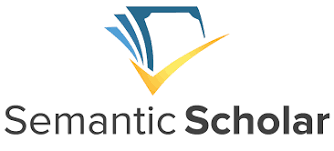Cultivating Young Minds: Metacognition’s Impact on Reading Proficiency
DOI:
https://doi.org/10.47616/jamrsss.v6i2.615Keywords:
Metacognition, Reading Proficiency, Self-Regulation, Cognitive DevelopmentAbstract
Metacognition, or being aware of how you process information, is important for younger readers to progress in reading. This study investigates how metacognition helps children's reading development. The approach examines areas of thinking such as self-awareness, considering actions, and looking back to uncover how metacognition contributes to good reading skills. Furthermore, the study seeks to evaluate how well metacognitive approaches increase the reading abilities of young learners. The researchers examined findings from studies and theoretical models connected to metacognition and proficiency in reading. The study aims to provide a broad overview of the subject. The study uses a narrative review approach, carefully reading recent literature on metacognition and reading development. It examines various studies that address the approaches and results of metacognitive treatments on the reading skills of young children. The synthesis of data from various research studies reveals what helps young people build metacognitive skills and improve their reading proficiency. It examines how these findings might guide educators and policymakers and suggests possible treatments and methods for inclusion in schools. This evidence highlights how using metacognition can completely change education and suggests including it in teaching to produce thoughtful and independent readers.
Downloads
References
Azevedo, R. (2020). Reflections on the field of metacognition: Issues, challenges, and opportunities. Metacognition and Learning, 15, 91–98. https://doi.org/10.1007/s11409-020-09225-4
Azevedo, R., Johnson, A., Chauncey, A., & Burkett, C. (2016). Self-regulated learning with MetaTutor: Advancing the science of learning with metacognitive tools. In D. J. Hacker, J. Dunlosky, & A. C. Graesser (Eds.), Handbook of metacognition in education (pp. 340–358). Routledge.
Baker, L., & Brown, A. L. (1984). Metacognitive skills and reading. In P. D. Pearson (Ed.), Handbook of reading research (pp. 353–394). Lawrence Erlbaum Associates.
Brown, A. L. (1978). Knowing when, where, and how to remember: A problem of metacognition. In R. Glaser (Ed.), Advances in instructional psychology (Vol. 1, pp. 77–165). Lawrence Erlbaum Associates.
Brown, A. L. (2015). The advancement of learning. In L. Corno & E. Anderman (Eds.), Handbook of educational psychology (3rd ed., pp. 78–96). Routledge.
Carretti, B., Caldarola, N., Tencati, C., & Cornoldi, C. (2014). Improving reading comprehension in reading and listening settings: The effect of two training programs focusing on metacognition and working memory. British Journal of Educational Psychology, 84(2), 194–210. https://doi.org/10.1111/bjep.12020
Coertjens, L. (2018). The relation between cognitive and metacognitive processing: Building bridges between the SRL, MDL, and SAL domains. British Journal of Educational Psychology, 88(1), 138–151. https://doi.org/10.1111/bjep.12180
Double, K. S., & Birney, D. P. (2019). Reactivity to measures of metacognition. Frontiers in Psychology, 10, 2755. https://doi.org/10.3389/fpsyg.2019.02755
Dweck, C. S. (2006). Mindset: The new psychology of success. Random House.
Flavell, J. H. (1979). Metacognition and cognitive monitoring: A new area of cognitive–developmental inquiry. American Psychologist, 34(10), 906–911. https://doi.org/10.1037/0003-066X.34.10.906
Fleming, S. M., & Lau, H. C. (2014). How to measure metacognition. Frontiers in Human Neuroscience, 8, 443. https://doi.org/10.3389/fnhum.2014.00443
Garner, R. (1987). Metacognition and reading comprehension. Ablex Publishing.
Goh, C. C. (2018). Metacognition in second language listening. In J. I. Liontas (Ed.), The TESOL encyclopedia of English language teaching (pp. 1–7). Wiley-Blackwell. https://doi.org/10.1002/9781118784235.eelt0545
Hamdoud, A. (2021). Metacognitive knowledge about EFL reading and writing achievement. Journal of Psychological & Educational Sciences, 7(1), Article 1.
Khani, Z. S. H. S. H., Fatehi Rad, N., & Jalali, V. (2023). The effectiveness of metacognitive awareness raising on reading comprehension and self-regulation of Iranian EFL learners. Journal of Modern Research in English Language Studies, 10(2). https://doi.org/10.30479/jmrels.2023.18266.1970
Moritz, S., & Lysaker, P. H. (2018). Metacognition—What did James H. Flavell say, and the implications for conceptualizing and designing metacognitive interventions. Schizophrenia Research, 201, 20–26. https://doi.org/10.1016/j.schres.2018.06.001
Moritz, S., Lysaker, P. H., Hofmann, S. G., & Hautzinger, M. (2018). Going meta on metacognitive interventions. Expert Review of Neurotherapeutics, 18(10), 739–741. https://doi.org/10.1080/14737175.2018.1518614
Nelson, T. O. (2015). Metacognition and the brain. In J. Dunlosky & S. K. Tauber (Eds.), The Oxford handbook of metamemory (pp. 13–33). Oxford University Press.
Nicolielo-Carrilho, A. P., & Hage, S. R. V. (2016). Metacognitive reading strategies of children with learning disabilities. Child Psychiatry & Human Development, 54, 1064–1074. https://doi.org/10.1007/s10578-016-0627-x
Norman, E., Pfuhl, G., Sæle, R. G., Svartdal, F., Låg, T., & Dahl, T. I. (2019). Metacognition in psychology. Review of General Psychology, 23(4), 403–424. https://doi.org/10.1177/1089268019883821
Palincsar, A. S., & Brown, A. L. (1984). Reciprocal teaching of comprehension-fostering and comprehension-monitoring activities. Cognition and Instruction, 1(2), 117–175. https://doi.org/10.1207/s1532690xci0102_1
Pressley, M., & Afflerbach, P. (1995). Verbal protocols of reading: The nature of constructively responsive reading. Erlbaum.
Quigley, A., Muijs, D., & Stringer, E. (2018). Metacognition and self-regulated learning: Guidance report. Education Endowment Foundation.
Schoenfeld, A. H. (1987). What is all the fuss about metacognition? In A. H. Schoenfeld (Ed.), Cognitive science and mathematics education (pp. 189–215). Lawrence Erlbaum Associates.
Schraw, G. (2009). A conceptual analysis of five measures of metacognitive monitoring. Metacognition and Learning, 4(1), 33–45. https://doi.org/10.1007/s11409-008-9031-3
Schraw, G., & Moshman, D. (1995). Metacognitive theories. Educational Psychology Review, 7(4), 351–371. https://doi.org/10.1007/BF02212307
Shea, N. (2018). Metacognition and abstract concepts. Philosophical Transactions of the Royal Society B: Biological Sciences, 373(1752), 20170133. https://doi.org/10.1098/rstb.2017.0133
Souto-Manning, M. (2019). Reimagining "best practices" in multicultural education: Insights from critical pedagogy. Educational Researcher, 48(3), 142–151. https://doi.org/10.3102/0013189X19848758
Swanson, H. L. (1999). Reading research for students with LD: A meta-analysis of intervention outcomes. Journal of Learning Disabilities, 32(6), 504–532. https://doi.org/10.1177/002221949903200605
Vygotsky, L. S. (1978). Mind in society: The development of higher psychological processes. Harvard University Press.
Wolsey, T. D., & Lapp, D. (2011). Reading in the 21st century: Turning the page with technology. International Reading Association.
Downloads
Published
How to Cite
Issue
Section
License
Copyright (c) 2025 Journal of Asian Multicultural Research for Social Sciences Study

This work is licensed under a Creative Commons Attribution-ShareAlike 4.0 International License.































